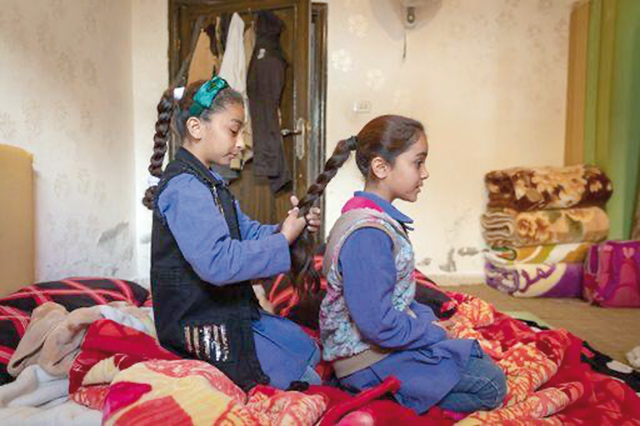AMMAN — UNICEF’s cash transfer programme has played a key role in helping children access education, suggests a new study released recently on maximising the impact of cash transfers for vulnerable adolescents in Jordan.
The study found higher school enrolment rates amongst vulnerable Jordanian adolescents compared to vulnerable Syrian adolescents, with boys the furthest behind, according to a UNICEF statement.
One in five Syrian adolescent girls surveyed could not read to a second-grade level, despite being in Grade 10, the study said.
Syrians living in the host community lagged half a grade behind, and those living in informal tented settlements nearly two grade levels behind their Jordanian peers, according to the study.
The study also identified economic and non-economic barriers to education in Jordan for vulnerable children and adolescents. In addition to conflict, poverty, and child marriage, these barriers included, but are not limited to, the cost of schooling, labour market “pull” factors and school violence, taking into consideration gender and disability, the statement said.
“UNICEF invests heavily in interventions aimed at improving children’s access to quality education to improve learning outcomes,’ said Shairose Mawji, deputy representative, UNICEF Jordan, in the statement.
“The long-term effects of dropping out-of-school, which have worsened during the COVID-19 pandemic, deprives children of skills they need to succeed in life and traps them in a cycle of poverty, adversely impacting the country’s economic growth,” Mawji said.
Basic education in Jordan is free and compulsory for all children. In addition to UNRWA serving registered Palestinian refugees, Syrian and non-Syrian refugees are integrated into Jordanian schools, including over 200 double-shift schools that accommodate Syrian refugees in the afternoon shift.
Jordanian, Syrian and non-Syrian refugees also have access to accredited non-formal education, as well as home-schooling, in addition to a variety of informal programmes, including UNICEF’s Makani programme.
Makani programme provides integrated packages of services including learning support services, skills building training, child protection activities, early childhood development, and social innovation skills.
“UNICEF is committed to working with the Government of Jordan and partners to ensure that every girl and boy has equal access to quality education,” said Mawji.
“Thanks to our donors, and through the Hajati programme, UNICEF has provided cash assistance to 14,000 of the most vulnerable families to enable children to access quality education and grow to their full potential,” Mawji added.
Hajati cash transfer programme initiated in September 2017, supporting 55,000 extremely vulnerable households with school-aged children access education.
The study concludes with key recommendations to overcome barriers facing children. These recommendations include:
— Increasing the cash assistance to vulnerable households with children in Grades 6-10 to better cover the direct and opportunity costs of education and promote retention.
— Extending the cash assistance programme to cover vulnerable secondary education students;
— Ramping up learning support in core subjects across all grade levels;
— Providing adolescent girls and children living with disabilities transportation support that best meets their needs;
— And strengthening the capacity of schools to monitor attendance and use referral pathways to support children to stay in school.
